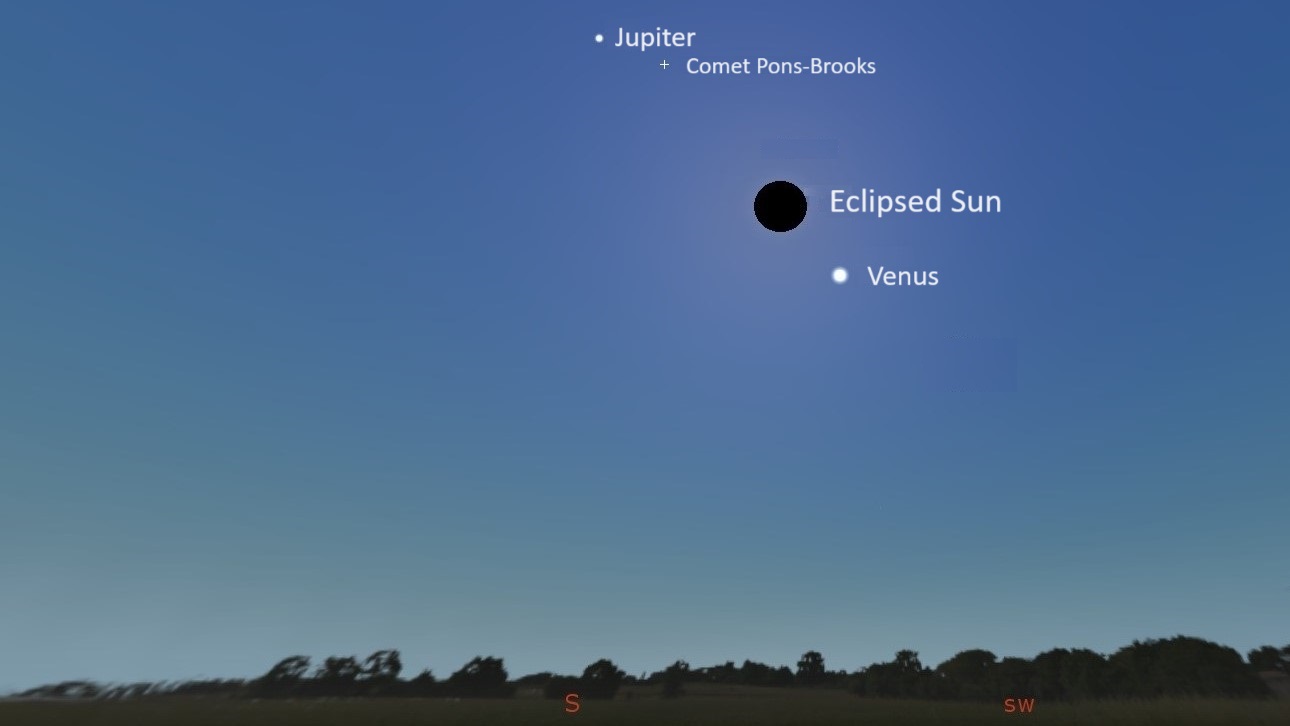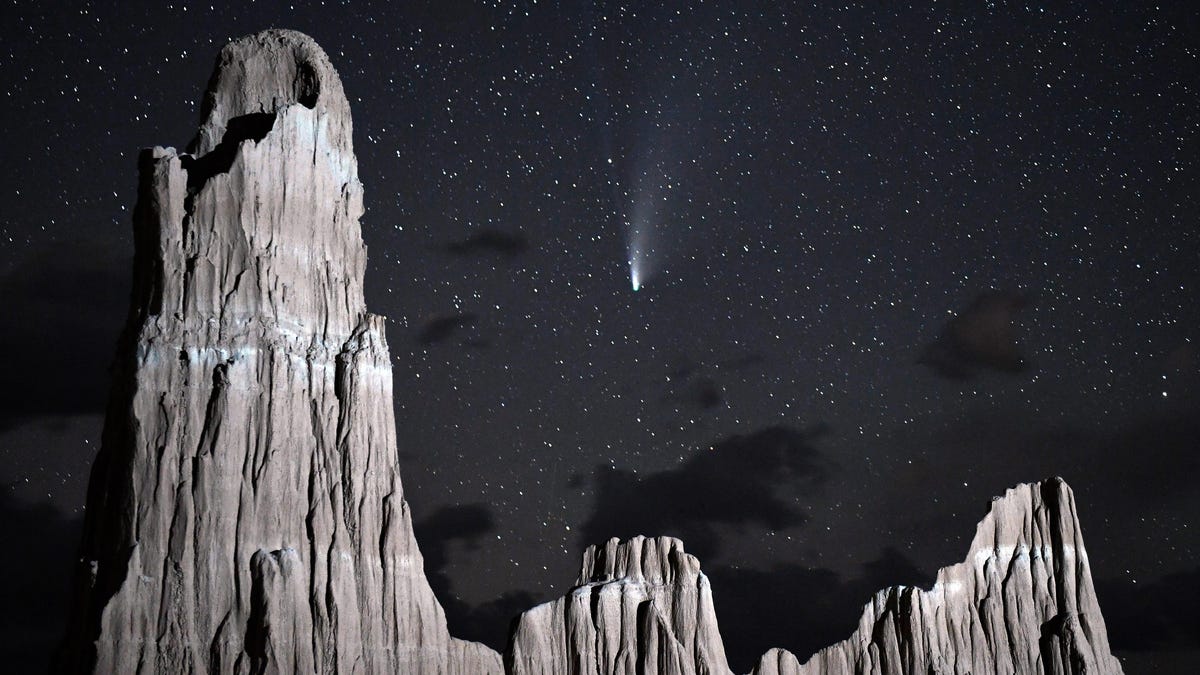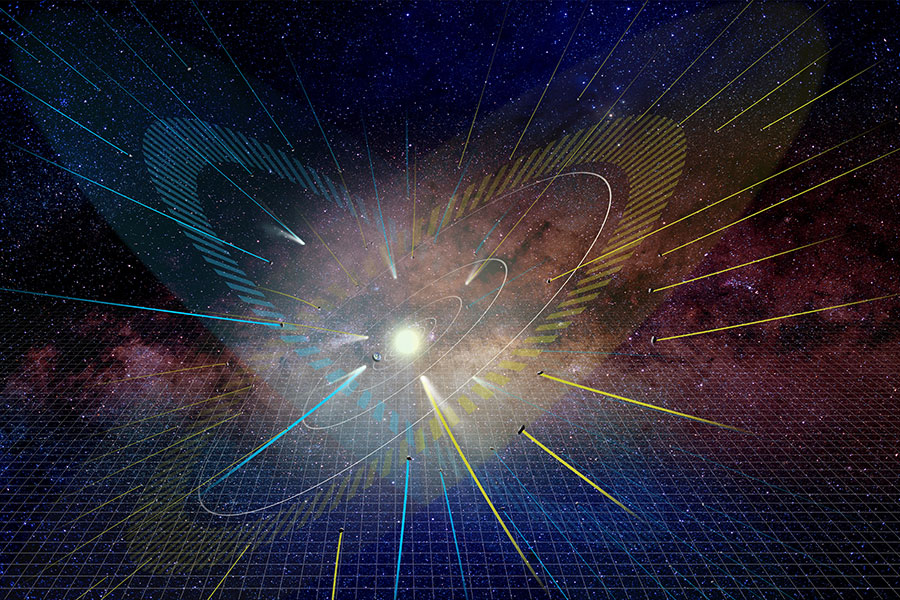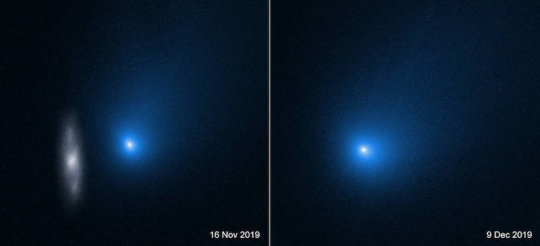
Comet Pons-Brooks visits the inner solar system every 71 years. Its next perihelion (when it’s closest to the sun) will be on April 21, 2024.

The observatory has achieved this milestone over 28 years in space, even though it was never designed to be a comet hunter.

Comet 12P/Pons-Brooks, known as the Devil Comet for its distinctive "horns," is fast approaching. Here

Researchers note a "synchronicity" of geochemical signals suggesting that fragments of a comet struck Earth approximately 13,000 years ago.

An incoming comet, C/2023 A3 (Tsuchinshan-ATLAS), recently spotted by telescopes in China and South Africa could be as bright as a planet in the night sky next year, according to astronomers who studied the object.

NASA officials said the icy visitor was first spotted in March 2022 while it was inside the orbit of Jupiter. The icy celestial body - called C/2022 E3 (ZTF), is making its closest approach to Earth on 2 February.

Comet Bernardinelli-Bernstein is estimated to be about 1000 times more massive than a typical comet, making it arguably the largest comet discovered in modern times.

Researchers have discovered a new superhighway network to travel through the Solar System much faster than was previously possible. They could be used to send spacecraft to the far reaches of our planetary system.

Almost all the objects orbiting the sun live in a particular plane. But a recent analysis of long-period comets reveals a second plane and it may be populated with comets.

Comet 67P/Churyumov-Gerasimenko has its own far-ultraviolet aurora, data reveal. It is the first time such electromagnetic emissions in the far-ultraviolet have been documented on an object other than a planet or moon.

At least 7.5 times as long as the distance between the Earth and the Sun (over a billion km), Comet 153P/Ikeya-Zhang’s ion tail is nearly double the length of the previous record-holder, Comet Hyakutake.

The Hubble Space Telescope has captured two images showing Atlas, originally up to 180 metres across, has broken into as many as 30 pieces, each about the size of a house.

Idea of microbes originating from space. Microbes can survive frozen, deep within the permafrost for millions and even billions of years. They might be perfectly adapted for a life on some frozen object, traveling through space.

Comet 2I/Borisov is only the second interstellar object known to have passed through the solar system. This mysterious visitor from the depths of space is the first identified comet to arrive here from another star.

It is now confirmed that the comet spotted a few weeks ago by amateur astronomer Gennady Borisov from MARGO Observatory, Crimea, is indeed coming from interstellar space. This is only the second known interstellar object to pass through our Solar System.